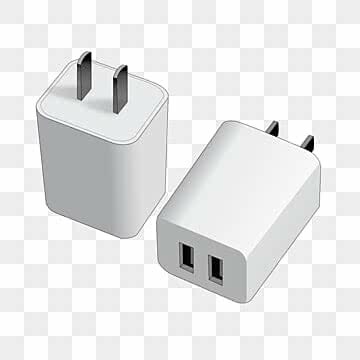Why Ask “Is AM5 Better Than AM4?”
Posted by Irshad sultan
Filed in Technology 187 views
With every new generation of PC hardware, builders and tech enthusiasts ask: “Is this new platform really better than the old one?” In the AMD ecosystem, the transition from AM4 to AM5 is one of the most significant shifts in recent years.
The question “is AM5 better than AM4” carries weight for anyone planning a new build or upgrade. This article compares AM5 and AM4 across architecture, performance, cost, compatibility, and future potential to help you decide which platform is better for your needs.
Understanding AM4 and AM5: What They Are
What is AM4?
-
AM4 is a CPU socket introduced by AMD in 2016.
-
It supported multiple generations of Ryzen CPUs (Zen, Zen+, Zen 2, Zen 3).
-
Uses DDR4 memory and supports PCIe 4.0 (on newer chipsets).
-
AM4 is now considered a mature or “legacy” platform in AMD’s roadmap.
What is AM5?
-
AM5 is the socket platform launched by AMD in 2022 to succeed AM4.
-
It introduces support for DDR5 memory, PCIe 5.0, and newer I/O features.
-
Physically, AM5 is a land grid array (LGA) style socket (CPU has contact surfaces, not pins).
-
AMD has committed to supporting AM5 for multiple years going forward.
Key Differences: AM5 vs AM4
Let’s compare side by side the most important differences so it’s easier to see where AM5 may shine and where AM4 still holds value.
Is AM5 Better Than AM4? Advantages of AM5
Here are reasons why many people believe is AM5 is better than AM4, especially for new builds and long-term plans:
-
Future-proofing
Since AMD has been backing AM5 for years, you can upgrade CPU generations without changing the faulty motherboard until they retire the socket. -
DDR5 & Higher Bandwidth
With AM5, you get access to DDR5, which enables higher bandwidth and future memory improvements. -
PCIe 5.0 Support
AM5 supports PCIe 5.0, making it ready for next-gen NVMe SSDs and GPUs down the line. -
Higher Performance Ceiling
Because of improved I/O, power delivery, and architecture, AM5 can better scale with future CPUs. -
Modern Features & I/O
Newer chipset features (USB, connectivity, faster lanes) are better on AM5 boards. -
Better for High-End Use Cases
For content creators, heavy workloads, or using next-gen hardware, AM5 offers more headroom.
Where AM4 Still Holds Strong
Despite the advantages of AM5, AM4 continues to be a viable and sensible path in many scenarios. Here’s why:
-
Cost Efficiency
AM4 components (DDR4, motherboards) are generally cheaper today, making it appealing for budget or midrange builds. -
Mature Ecosystem
AM4 is well-tested. BIOS support, stability, and compatibility are mature and reliable. -
Strong High-End AM4 CPUs
CPUs like the Ryzen 5000 series, especially with 3D V-Cache, still offer excellent performance in gaming and productivity. -
Lower Additional Cost
You avoid spending extra on new DDR5 memory or premium motherboards. -
Upgrade for Current Users
If you already have an AM4 setup, upgrading within that ecosystem may yield great value.
Should You Switch? How to Decide
Deciding whether to go AM5 or stick with AM4 depends on your goals, budget, and the lifespan you expect from your system.
Steps & Questions to Guide Your Decision
-
Budget Assessment
Can you afford the extra cost of DDR5 memory and AM5 motherboard? -
Intended Usage
-
Gaming at 1080p or light tasks? AM4 may suffice.
-
4K gaming, content creation, or long-term usability? AM5 is better.
-
Upgrade Path Desire
Do you want to upgrade your CPU later without switching the motherboard? AM5 gives more room. -
Component Compatibility
Check if your existing cooler, PSU, and case will work or need changes for AM5. -
Expected Lifetime
If you change systems often (every 3–4 years), AM4 might still make sense.
Real-World Opinions & Anecdotes
-
Many builders on forums say AM4 is better value for now because it’s a mature, stable platform.
-
Some suggest going AM5 by default if your budget allows, to ensure a longer upgrade path.
-
Others caution about early AM5 teething problems (BIOS, memory timings).
FAQs: Is AM5 Better Than AM4?
Q1. Can I use DDR4 on AM5?
No — AM5 supports only DDR5 memory. DDR4 is not compatible.
Q2. Are processors cross-compatible (AM4 CPUs on AM5 boards or vice versa)?
No — AM4 CPUs won’t fit in AM5 sockets, and AM5 CPUs are not supported on AM4 motherboards.
Q3. Does upgrading to AM5 require changing the entire PC?
You’ll at least need a new motherboard and DDR5 memory. Depending on your cooler or other parts, there may be more changes.
Q4. Are the performance gains worth it now?
It depends. For many users, high-end AM4 CPUs are still strong. But for future upgrades and cutting-edge builds, AM5 offers better headroom.
Q5. How long will AM5 be supported?
AMD has indicated multi-generation support. AM5 is designed to last beyond just immediate CPU releases.
Q6. What about power and cooling differences?
AM5 setups may demand higher-quality VRMs and cooling because of higher power draw in some chips. Choose motherboards with strong power delivery.
Conclusion
So, is AM5 better than AM4? The answer is: Yes, in many respects, especially if you are building a new system and want future flexibility. AM5 provides advanced features, better upgrade potential, and improved architecture. However, AM4 still offers strong value today, particularly for budget builds or when upgrading an existing system.
If your goal is longevity, performance headroom, and future-proofing, AM5 is the better choice. But if you want cost-effectiveness or are upgrading within an existing AM4 system, staying on AM4 might still make sense.
Let your priorities—performance, budget, upgrade path—guide your decision. Either path can yield a great PC when chosen wisely.
